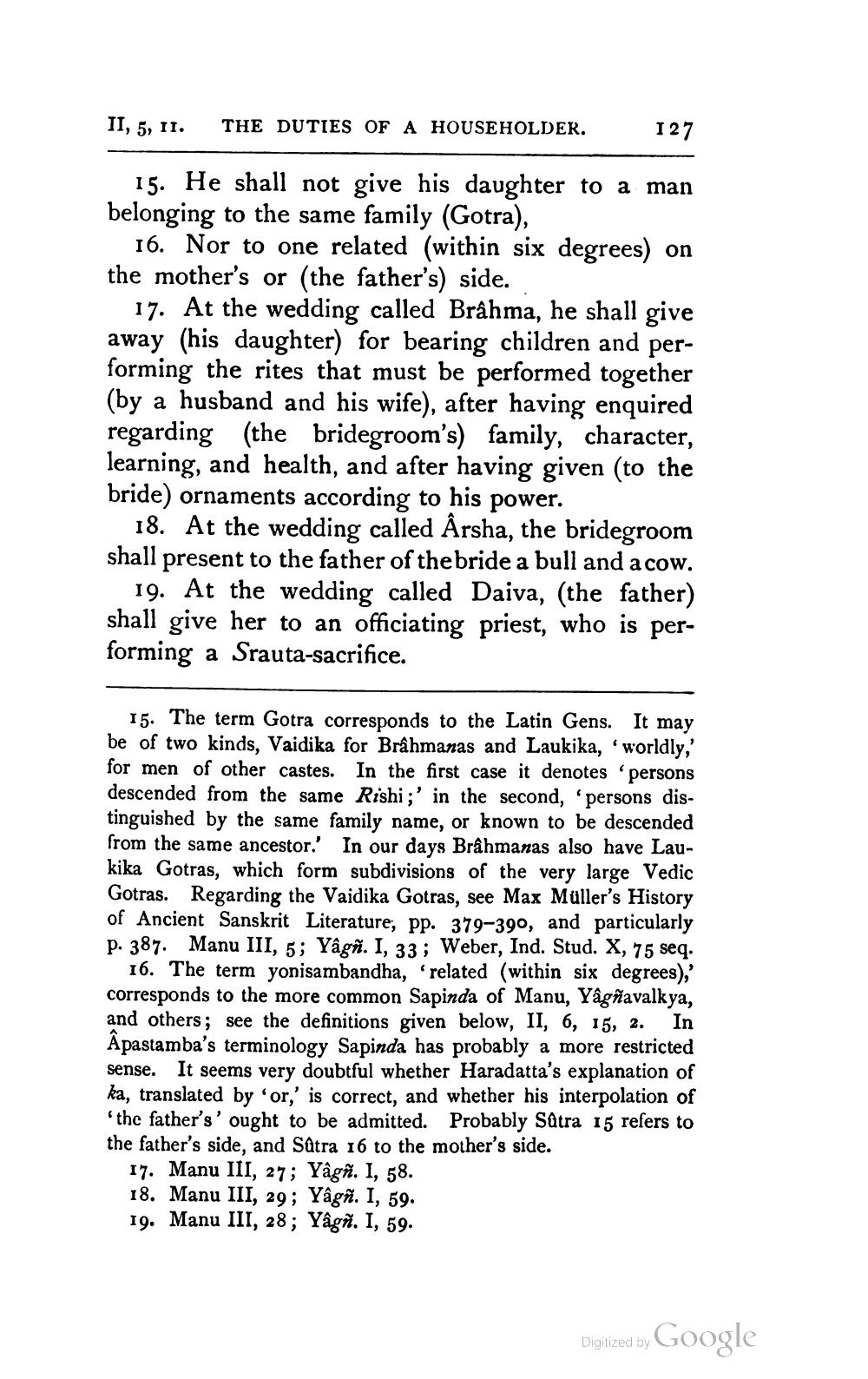________________
II, 5, II.
127
15. He shall not give his daughter to a man belonging to the same family (Gotra),
16. Nor to one related (within six degrees) on the mother's or (the father's) side.
17. At the wedding called Brâhma, he shall give away (his daughter) for bearing children and performing the rites that must be performed together (by a husband and his wife), after having enquired regarding (the bridegroom's) family, character, learning, and health, and after having given (to the bride) ornaments according to his power.
18. At the wedding called Ârsha, the bridegroom shall present to the father of the bride a bull and a cow.
THE DUTIES OF A HOUSEHOLDER.
19. At the wedding called Daiva, (the father) shall give her to an officiating priest, who is performing a Srauta-sacrifice.
15. The term Gotra corresponds to the Latin Gens. It may be of two kinds, Vaidika for Brahmanas and Laukika, 'worldly,' for men of other castes. In the first case it denotes 'persons descended from the same Rishi;' in the second, 'persons distinguished by the same family name, or known to be descended from the same ancestor.' In our days Brahmanas also have Laukika Gotras, which form subdivisions of the very large Vedic Gotras. Regarding the Vaidika Gotras, see Max Müller's History of Ancient Sanskrit Literature, pp. 379-390, and particularly p. 387. Manu III, 5; Yâgñ. I, 33; Weber, Ind. Stud. X, 75 seq.
16. The term yonisambandha, 'related (within six degrees),' corresponds to the more common Sapinda of Manu, Yâgñavalkya, and others; see the definitions given below, II, 6, 15, 2. In Âpastamba's terminology Sapinda has probably a more restricted sense. It seems very doubtful whether Haradatta's explanation of ka, translated by 'or,' is correct, and whether his interpolation of 'the father's' ought to be admitted. Probably Sutra 15 refers to the father's side, and Sutra 16 to the mother's side.
17. Manu III, 27; Yâgn. I, 58.
18. Manu III, 29; Yâgñ. I, 59. 19. Manu III, 28; Yâgn. I, 59.
Google
Digitized by




